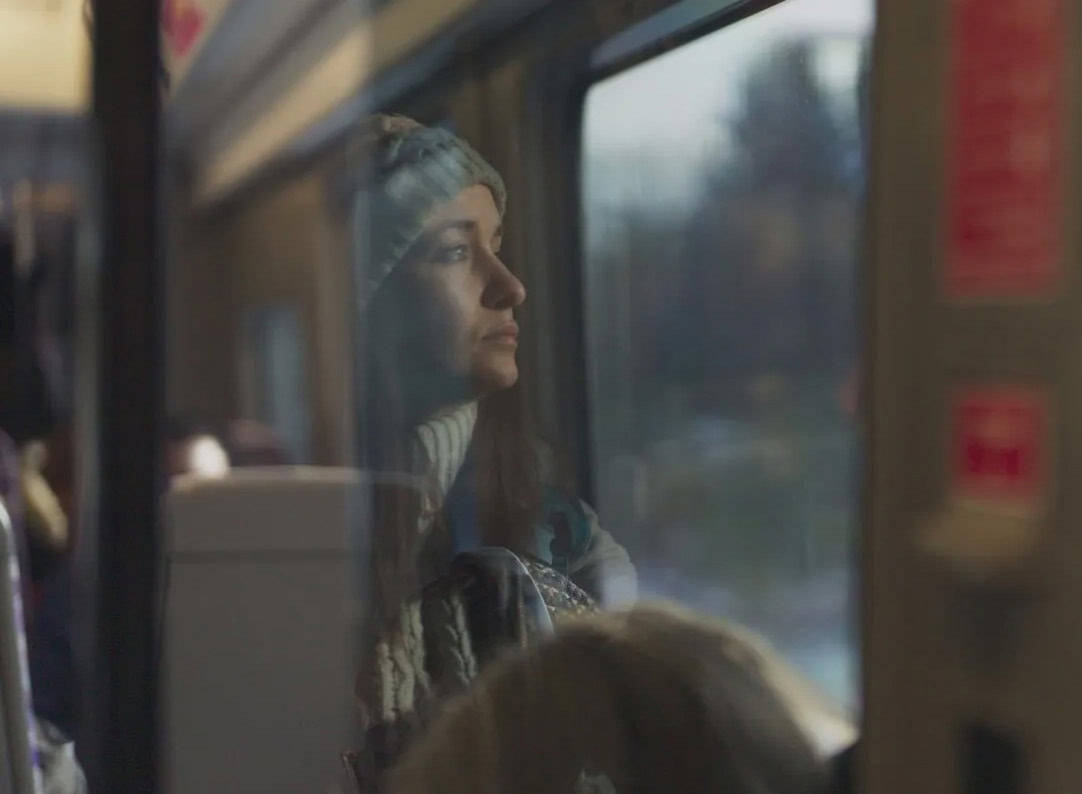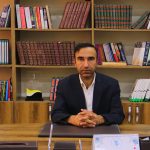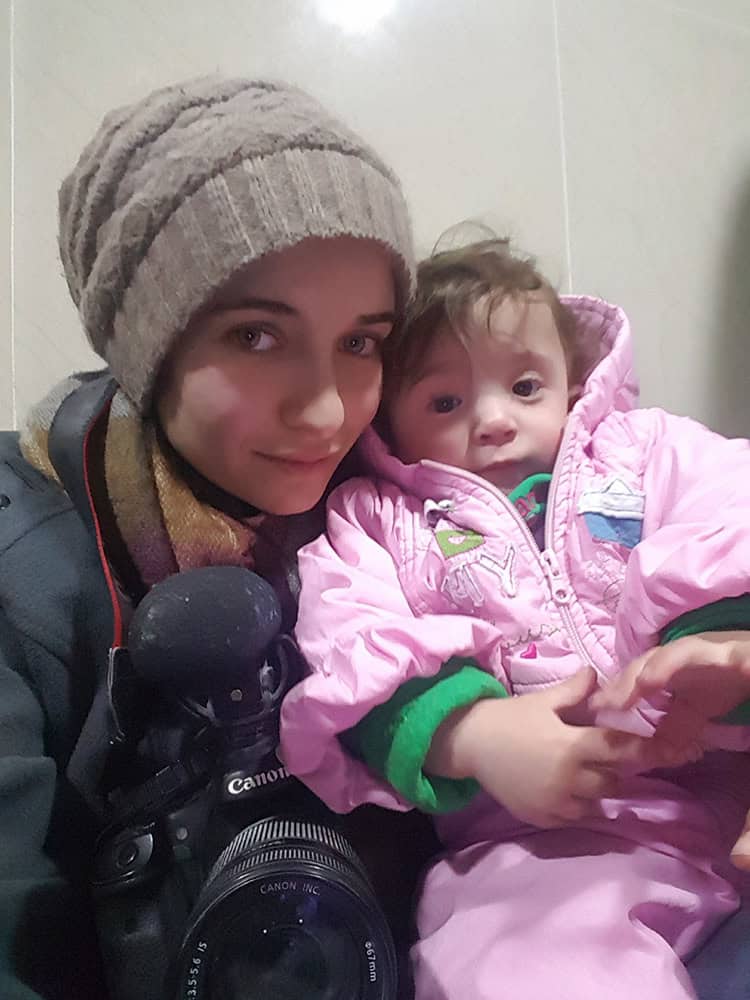
The award winning Syrian filmmaker Waad Al-Khateab inspired the world when she released For Sama, a very personal journey through five years of the uprising in her native Aleppo. Years later she took on another epic challenge to direct We Dare to Dream, a powerful documentary film featuring refugee athletes who competed for a place in the 2020 Olympic Games. The film beautifully weaves together the stories of refugee athletes from Iran, Syria, South Sudan and Cameroon who swim, run, weight lift and fight their way for a coveted spot at the world’s biggest sports event. With the Paris 2024 Olympics taking place this year, this newly released film is even more poignant and timely as it remarkably takes us through the trials and tribulations and achievements of the IOC Refugee Olympic Team. Qisetna speaks to Al-Khateab to understand more about the making of this complex and highly rewarding film…
We Dare to Dream portrays the struggles and triumphs of athletes who also had to overcome tremendous hurdles as refugees. Dealing with so many different athletes from different nationalities/backgrounds must have been challenging. What was the most difficult part for you making this film?
To be honest, I wasn’t really ready as Waad, the filmmaker, to do the second film in the same way as For Sama. But at the same time, again, the whole documentary journey and how I deal with filmmaking, the journey of understanding my situation, myself as a refugee, accepting that I’m no longer in Aleppo and, I’m no longer going back there, I have a new journey to start over here (UK). That was part of the whole experience of making We Dare to Dream. I mean, there were so many difficulties, but I think the emotional and the mental parts were the biggest ones for me, because anyone who watches For Sama can understand that that was my entire life. It’s extremely personal for me. Not just how I made For Sama, but also the journey after the film put me in a ‘bubble’. Five years later, I am living in London but my heart and mind is still in Aleppo. As though I’m still living there! It’s not healthy, but at the same time it was important for me as an activist to keep going and telling other stories.
Was We Dare to Dream a completely new chapter for you?
It closed one door for me and opened a new one. And I had to take that decision, which I felt was brave at the beginning, even when I was really hesitant about this. I don’t like sports. I never follow Olympic sports, or any kind of sports for that matter. I barely go fishing! But I knew this project was brought to me because of the refugee journey. I felt that now I am at a new level. I have a platform and I want to do something really meaningful. I felt there’s something missing within our representation as refugees. And I did want to do something different. I wanted to try what I can do, you know, and that’s how this film started. I read one of the athlete’s posts when she left Iran (Kimia Alizadeh). That’s the post that made me get so emotional and determined to do this film. I could see similarities, even when the stories are very different. I felt I could do something different and I wanted to pursue this journey.
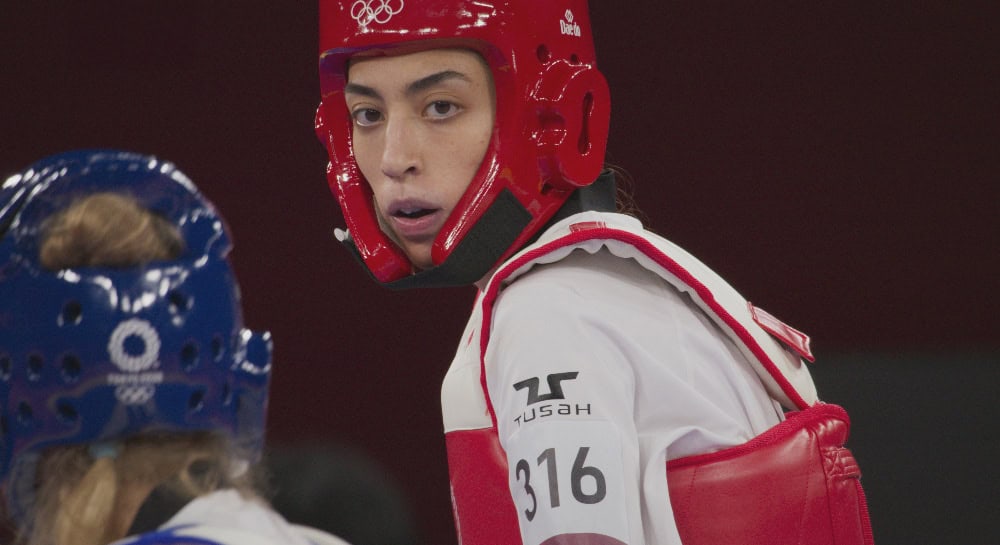
How did the name of the film come about?
At the Oscars for For Sama I wore the dress which said on it: ‘We dare to dream, we won’t regret dignity’. Two years later I started work on my second film We Dare to Dream. While making the film and exploring myself, understanding my situation as a refugee and finding the similar pain, struggles and dreams in these refugee Olympic athletes, it reminded me that what was on my dress was part of our collective experience. Every one of these five athletes feel the same way. We don’t speak the same language nor understand the situation of others in their home countries, but we all have the same thing; we all dared to dream when we took this journey. It was kind of natural to give it that name. It’s from the heart.
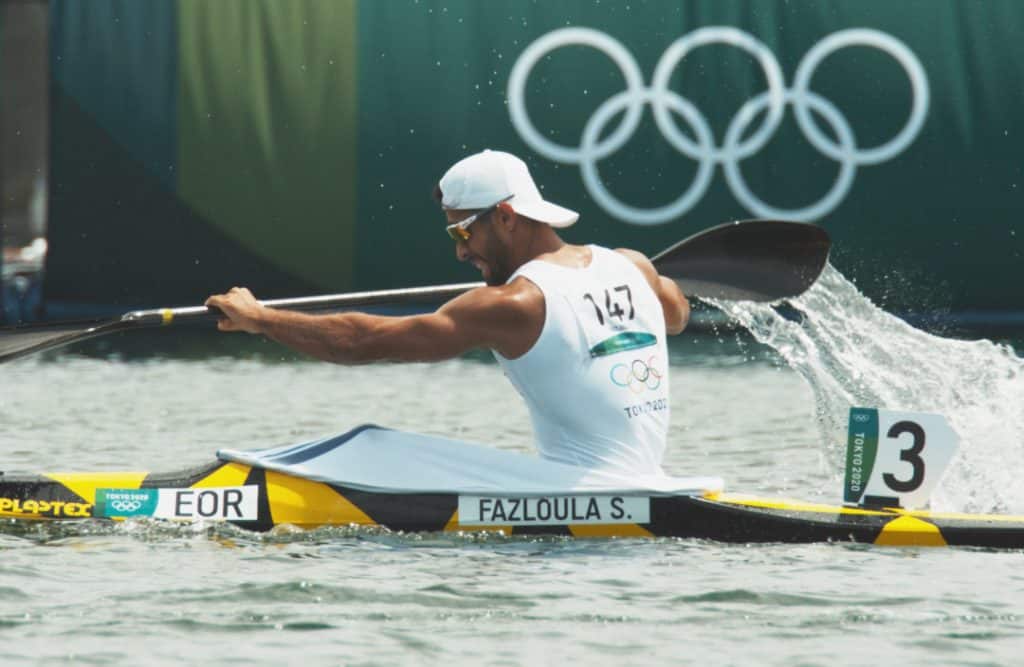
Normally athletes representing the same country have a similar cultural background. Here, they come from different backgrounds but they all understand the journey of struggle, hardship and being displaced from their original country. What was their mindset coming together to perform at the Olympics, the world’s biggest platform for sports? How did they approach collaborating with each other and with you?
The team itself is on a journey – the whole dynamics of the team and the way athletes are dealing with each other. For example, some athletes on the team really don’t know a lot about each other’s countries, including myself. But I think what is really important within this web is, we are setting up the feeling and the meaning. And now even athletes, journalists, and refugees who are not part of the team, are a little bit more aware of this journey and this experience. There are many cultural differences between athletes, including language. Even athletes on the same team could not communicate! It’s really important that all of us can connect with each other, with the displacement journey – who we left behind back home, how much we miss our childhood, our country or our families there, and with how many challenges we have in our new community. Although the athletes had different kinds of experiences and stories, and everyone was displaced for different reasons, there’s a lot of shared experience at the same time, and that’s what’s evident. You see Wael Fawaz Al-Farraj from Syria (living in Azraq Camp in Jordan), who speaks only Arabic, talks to Saeed Fazloula from Iran who speaks German and Farsi! You know the way they connect with each other- they understand something within this shared experience. That is what binds them and helps them to collaborate.
Dare to Dream focused on the story of five athletes. Did this selection come naturally, based on their personalities and willingness to be featured?
It was a very long and difficult journey for me to get to these five individuals. We actually followed nine athletes from the start of this story before the Tokyo Olympics. However, five stories made it to the final cut of the film. In fact, out of all the 29 athletes that participated, I felt that I could do a whole series on each one of them! Maybe 29 episodes could follow? There were amazing stories. Take Wael for example, he did not make it to the final cut of the Olympic team but we kept him as one of the five featured athletes because his story is so inspiring. I tried very hard and it broke my heart to have to choose only five. It was like assembling a puzzle to show as much representation as you can. You know, like, we have over 120 million refugees all over the world. So it’s not possible to cover all of them. I was just trying to get different elements of their experience and put them together and get a wide picture of their overall stories within this film.
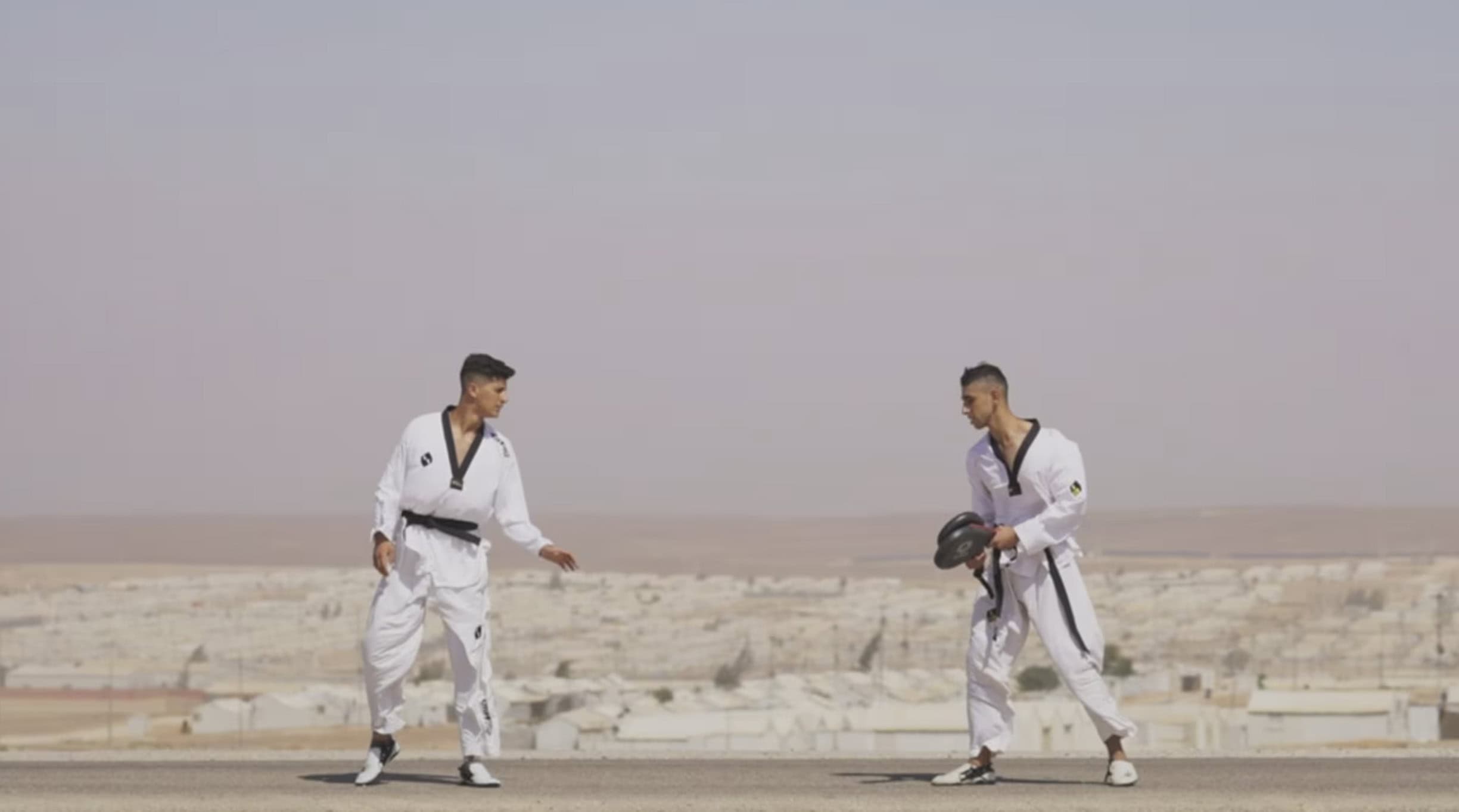
Sport, like art, is a great unifier that brings people together. Here, sports unites these refugee athletes but sports has given them strength or a reason and it has given them an ability to fight back and provide them a purpose to life, if you will. Can you reflect on that for the readers?
Doing something meaningful and doing something you love, whether it’s sports or something else you are able to do, that you like or can learn to do is very important. After making We Dare to Dream I understood how hard it is to be a professional athlete, but even more challenging is being a refugee in addition. This sends a powerful message, not just to refugees scattered all over the world, but also for governments and organisations. We have to build this opportunity through sports, arts or something else that can galvanise change for a better outcome. This film just serves as an example of what we can do for refugees.
Interview by: Alia Fawaz and Kartik Nihal Bharadwaj
Translation by: Juanna Anez

